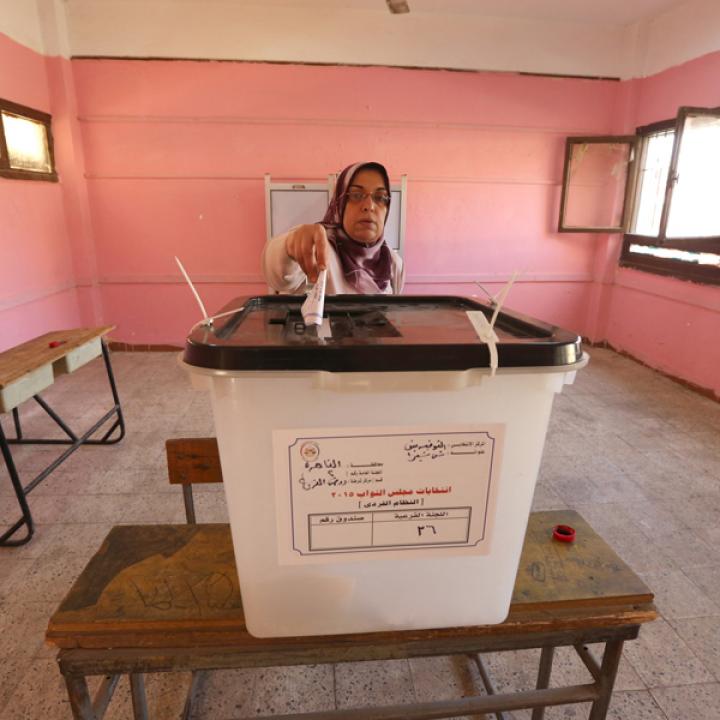

This paper, the eighth in a series of essays exploring prospects for reform throughout the Middle East, explains the near absence of a political center within Egypt by examining the failure of non-Islamist reformists to assert themselves as a meaningful political force following Mubarak's overthrow.
Since the January 2011 uprising that ended the rule of longtime president Hosni Mubarak, Egyptian politics has consisted of an increasingly bitter struggle between Islamists and autocrats.
This paper, the eighth in a series of essays exploring prospects for reform throughout the Middle East, explains the near absence of a political center within Egypt by examining the failure of non-Islamist reformists to assert themselves as a meaningful political force following Mubarak's overthrow. It traces the weakness of these parties to the Mubarak government's enforcement of certain redlines, and argues that the Muslim Brotherhood's exclusivism drove those parties to support the ouster of Egypt's first elected president, Brotherhood leader Mohamed Morsi, and its brutal aftermath.
THE AUTHOR
Eric Trager, the Esther K. Wagner Fellow at The Washington Institute, is an expert on Egyptian politics and the Muslim Brotherhood in Egypt. He was in Egypt during the 2011 anti-Mubarak revolts and returns frequently to conduct firsthand interviews with leaders in Egypt's government, military, political parties, media, and civil society. His writings have appeared in numerous publications, including the New York Times, Wall Street Journal, Foreign Affairs, the Atlantic, and the New Republic.
Beyond Islamists and Autocrats Essay Series




